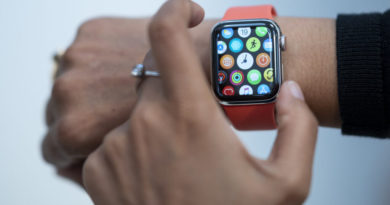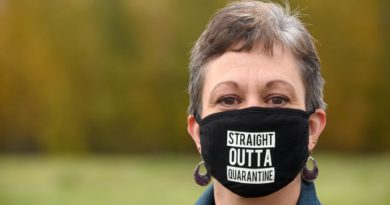US coronavirus: Covid-19 infections among students have already caused some colleges to change plans
Despite efforts to keep the virus at bay, outbreaks have been traced to off-campus gatherings, sororities, fraternities and dorms, leaving schools to reassess how to proceed with the fall semester.
At Appalachian State University, in North Carolina, a cluster was associated with the football team. Iowa State University said 175 students tested positive for the virus — about 2.2% of those tested — during move-in.
“It’s just extremely difficult to consider yourself to be in a bubble when there is a very high level of community spread around you or when people are coming from all over the country and congregating on college campuses,” said Dr. Leana Wen, the former Baltimore City Health Commissioner. “You can’t keep coronavirus out.”
While older Americans and those with underlying conditions are at greater risk of severe illness, health officials have emphasized it’s not only those populations that should be cautious.
And younger people who may recover from the virus with minimal symptoms and in many cases don’t require hospitalization, still can have “residual symptoms for weeks and sometimes month,” said Dr. Anthony Fauci, the director of the National Institute of Allergy and Infectious Diseases.
“We’d better be careful when we say ‘Young people who don’t wind up in the hospital are fine, let them get infected, it’s OK.’ No, it’s not OK,” Fauci said during an American Society for Microbiology briefing on Monday.
Universities rethinking amid outbreaks
All undergraduate classes at the University of Notre Dame will be remote for the next two weeks after 147 students tested positive for coronavirus, the president announced this week.
At Colorado College, all 155 students in one dorm have been forced to quarantine after the college learned of a student who tested positive and did not practice proper social distancing guidelines.
At Drake University, 14 students were asked to leave the campus for two weeks after violating an agreement signed by students that outlined health and safety protocols for the year.
North Carolina State University, Iowa State University, Oklahoma State University, Northeast Mississippi Community College, Western Kentucky University and East Carolina University have all reported significant numbers of cases as well.
Others schools have seen the writing on the wall and adjusted their plans.
Ithaca College, in New York, which previously pushed back its fall in-person semester to October, announced this week it was shifting to remote instruction for the entire semester.
Michigan State University classes will begin remotely for all undergraduates, President Samuel L. Stanley announced.
FDA emergency authorization of blood plasma on hold
The hold came after a group of federal health officials — including National Institutes of Health Director Dr. Francis Collins, National Institute of Allergy and Infectious Diseases Director Dr. Anthony Fauci and Lane — stepped in to argue the emerging data on the treatment was too weak, the Times reported Wednesday, citing two senior administration sources.
“The three of us are pretty aligned on the importance of robust data through randomized control trials, and that a pandemic does not change that,” Lane told the Times.
Meanwhile, SalivaDirect, the test that got the green light from the FDA last week, could be in use by approved labs within the next few weeks, says Anne Wyllie, an epidemiologist at Yale School of Public Health who was part of the team responsible for the protocol.
“It’s been actually very inspiring to see how many labs have already reached out to us — how many are ready and willing to get going with SalivaDirect,” Wyllie told CNN.
This is great news for many Americans who still have to wait several days to receive their results — a waiting period that some health officials have called counterproductive to the country’s efforts to get the virus under control.
“We simplified the test so that it only costs a couple of dollars for reagents, and we expect that labs will only charge about $10 per sample,” said Nathan Grubaugh, a Yale assistant professor of epidemiology.
CNN’s Amanda Watts, Naomi Thomas, Annie Grayer, Jamiel Lynch, Giovanna Van Leeuwen and Jennifer Henderson contributed to this report.







